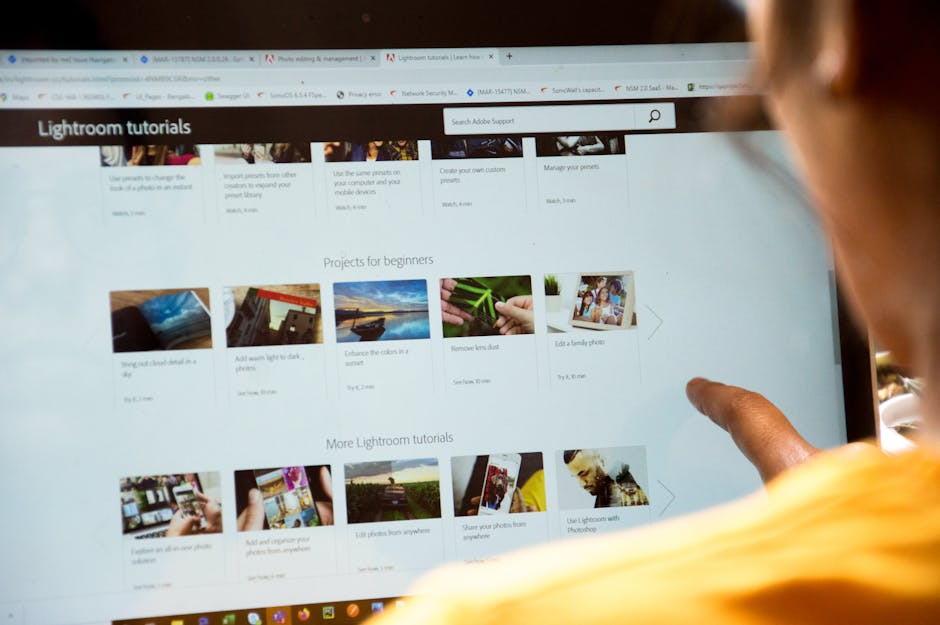Python for Beginners: Top Tutorials to Kickstart Learning
Are you ready to dive into the world of Python? 🐍 Whether you’re looking to enhance your career prospects or simply want to explore a new hobby, Python is a fantastic place to start. This versatile programming language is not only beginner-friendly but also widely used in industries like web development, data science, and artificial intelligence. In this blog post, we’ll explore some of the top tutorials to help you kickstart your Python learning journey. Let’s get started!
Table of Contents
1. Why Learn Python?
2. Getting Started with Python: The Basics
3. Top Python Tutorials for Beginners
4. Interactive Platforms to Practice Python
5. Conclusion
6. FAQs
Why Learn Python? 🤔
Before we dive into the tutorials, let’s take a moment to understand why Python is such a popular choice for beginners. Python’s syntax is clean and easy to understand, making it an excellent option for those new to coding. Moreover, Python has a large community, which means you’ll have access to countless resources and support. Plus, it’s incredibly versatile, allowing you to build anything from simple scripts to complex machine learning models.
Getting Started with Python: The Basics
Before jumping into tutorials, it’s essential to have a basic understanding of Python. Here are a few steps to get you started:
1. Set up Your Environment
First, you’ll need to install Python on your computer. Head over to the official Python website and download the latest version. Once installed, you can use a text editor like VSCode or an IDE like PyCharm to write your code.
2. Understand the Syntax
Python’s syntax is designed to be intuitive. Focus on learning the basic structures such as variables, loops, and functions. Don’t worry if it feels overwhelming at first; practice makes perfect!
Top Python Tutorials for Beginners 📚
Now that you’re set up, let’s explore some of the best tutorials to start your Python journey:
1. Codecademy’s Python Course
Codecademy offers an interactive Python course that covers everything from basic syntax to more advanced topics like loops and functions. The hands-on approach ensures you learn by doing, which is perfect for beginners.
2. Automate the Boring Stuff with Python
This free online book by Al Sweigart is a fantastic resource for those looking to apply Python to practical tasks. The book focuses on automating everyday tasks, making it both fun and useful.
3. Python for Everybody (Coursera)
Offered by the University of Michigan, this Coursera course is designed for absolute beginners. It covers Python basics and includes assignments to reinforce your learning.
Interactive Platforms to Practice Python 🎮
Once you have a grasp of the basics, it’s time to practice! Here are a few interactive platforms where you can hone your skills:
1. LeetCode
LeetCode offers coding challenges that range from easy to difficult. It’s a great place to practice problem-solving and coding in Python.
2. HackerRank
HackerRank provides a plethora of coding problems to solve, covering various topics and skill levels. The platform also includes discussions and leaderboards for added motivation.
Conclusion
Embarking on your Python learning journey is an exciting step forward. With the right resources and a little bit of practice, you’ll be well on your way to mastering this powerful language. Whether you’re aiming to build apps, analyze data, or automate tasks, Python opens up a world of possibilities. Happy coding! 🎉
FAQs
1. Is Python hard to learn for beginners?
Not at all! Python is known for its simple and readable syntax, making it one of the most accessible programming languages for beginners.
2. How long does it take to learn Python?
The time it takes to learn Python can vary based on your goals and dedication. Generally, a few weeks of consistent practice can give you a solid foundation.
3. What can I do with Python once I learn it?
Python is incredibly versatile. You can use it for web development, data analysis, automation, machine learning, and much more. The possibilities are endless!
4. Do I need any prior programming experience to learn Python?
No prior experience is needed. Python is beginner-friendly and many resources are designed with absolute beginners in mind.
5. Are there any free resources to learn Python?
Yes! Many platforms offer free resources, such as Codecademy, Automate the Boring Stuff with Python, and Python for Everybody on Coursera.





